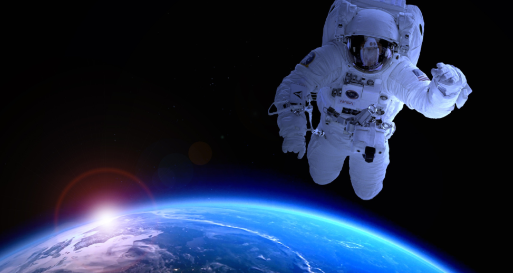Even during short-term space travel, astronauts in orbit around the Earth frequently experience immune system issues, including infections and the reactivation of dormant viruses.
According to a new study, this is due to a lack of gravity, which causes the immune system to malfunction when in space.
Immune cells tend to grow differently in weightless environments, which affects their ability to fight disease, according to a study published in Nature Communications on June 11.
“We show how simulated microgravity shapes immune cells and how changes in force alter the cells’ function at the single cell level,” researcher Dr. Daniel Winer, a gerontologist at the University of Southern California’s Buck Institute for Research on Aging, stated in a news release.
Also read-Following A Deadly Heat Wave Last Summer, Metro Phoenix Is Changing Tactics

Space Travel
The researchers also discovered that at least one supplement, the plant pigment quercetin, can protect the immune system from the consequences of weightlessness.
Researchers discovered that quercetin corrected around 70% of immune cell alterations caused by a lack of gravity. It appears in red onions, grapes, berries, apples, and citrus fruits.
The researchers examined under a microscope how 25 hours of simulated microgravity affected immune cells produced from the blood of 27 healthy adult donors aged 20 to 46.
The cells were grown in NASA’s Rotating Wall Vessel, a piece of lab equipment that replicates weightlessness by slowly rotating cell cultures, effectively keeping them in a constant state of free fall.

Space Travel
The scientists then compared their lab findings to data from previous studies conducted on humans and mice who had gone into space.
Researchers discovered various genes and biochemical processes that are altered by microgravity and then looked for specific medications or supplements that could protect immune cells.
An AI system developed to detect over 2 million connections between genes, medications, and foods identified quercetin as a viable way to strengthen the immune system while in space.
“Our work provides a resource to better understand how and why the immune system changes in simulated microgravity and spaceflight,” says David Furman, chief AI officer at the USC Buck Institute for Research on Aging. “We also provide a method to design countermeasures to maintain normal immunity under these harsh conditions.”

Space Travel
“This is the first comprehensive study that provides the scientific community worldwide with an atlas to understand human biology in this extreme condition,” Furman stated. “The implications are huge, beyond humans in space.”
Furman suggested that these immune system modifications may have similarities to those that occur as people age. Using this knowledge, researchers could look into medicines that could prevent the immune system from deteriorating as people age.

Space Travel
Also read: Stay Safe From The Sun And That Backyard Grill On Memorial Day
images source: Google
Disclaimer: The opinions and suggestions expressed in this article are solely those of the individual analysts. These are not the opinions of HNN. For more, please consult with your doctor




































